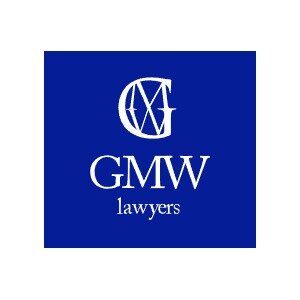Best Commercial Real Estate Lawyers in The Hague
Share your needs with us, get contacted by law firms.
Free. Takes 2 min.
Free Guide to Hiring a Real Estate Lawyer
List of the best lawyers in The Hague, Netherlands
About Commercial Real Estate Law in The Hague, Netherlands
Commercial Real Estate in The Hague, Netherlands refers to properties used for business purposes, such as offices, retail spaces, and industrial buildings. The legal framework surrounding Commercial Real Estate in The Hague is governed by specific laws and regulations to ensure fair and transparent transactions, protect the rights of tenants and landlords, and maintain a stable and thriving commercial property market.
Why You May Need a Lawyer
Engaging the services of a lawyer specializing in Commercial Real Estate in The Hague can be crucial in various situations:
- Property Purchase or Sale: When buying or selling commercial property, a lawyer can assist with contract negotiation, due diligence, and ensure compliance with legal requirements.
- Lease Agreements: Lawyers can review, draft, or negotiate lease agreements to protect your rights as a tenant or landlord, or assist with lease termination or dispute resolution.
- Zoning and Permits: Understanding the applicable zoning regulations and obtaining necessary permits for property use can be complex. A lawyer can guide you through the process.
- Property Development: Whether you are planning to develop a new commercial property or renovate an existing one, a lawyer can assist with land use regulations, permits, contracts, and compliance matters.
- Litigation and Dispute Resolution: If a commercial real estate dispute arises, such as breach of contract, property damage, or eviction, a lawyer can represent your interests and help resolve the issue through negotiation or litigation.
Local Laws Overview
Key aspects of local laws relevant to Commercial Real Estate in The Hague, Netherlands include:
- Land Use and Zoning Regulations: The Hague has specific zoning regulations that dictate how commercial properties can be used.
- Lease Laws: The Civil Code governs lease agreements, including rights and obligations of tenants and landlords.
- Building Codes and Permits: Compliance with building codes and obtaining necessary permits is essential for development or renovations of commercial properties.
- Taxation: Property taxes, GST (Goods and Services Tax), and other taxes may apply to commercial real estate transactions.
- Tenant Protection Laws: Certain laws protect tenants' rights, such as restrictions on rent increases and eviction procedures.
Frequently Asked Questions
1. Can a foreigner buy commercial real estate in The Hague?
Yes, foreigners can buy commercial real estate in The Hague. However, specific regulations and restrictions may apply depending on their residency status and country of origin. It is advisable to consult a lawyer familiar with real estate transactions involving foreign buyers.
2. What are the typical costs associated with purchasing commercial real estate?
The costs associated with buying commercial real estate in The Hague include purchase price, notary fees, transfer tax, and potential agent fees. Additionally, you may need to consider costs related to due diligence, surveys, and financing.
3. Are there any specific building permits required for commercial property renovations?
Yes, depending on the scope and nature of the renovations, you may need various permits, such as construction permits, environmental permits, or permits for structural changes. It is vital to consult a lawyer or the local municipality to determine the specific permits required.
4. What rights do commercial tenants have in The Hague?
Commercial tenants have various rights, including the right to a safe and well-maintained property, protection against unfair commercial lease terms, and the ability to request lease extensions or renewal. It is recommended to have a lawyer review your lease agreement to understand your specific rights as a commercial tenant.
5. How can I resolve a commercial real estate dispute?
If you encounter a commercial real estate dispute in The Hague, it is advisable to seek legal advice. Your lawyer can attempt to negotiate a resolution, initiate mediation or arbitration, or, if necessary, represent you in court proceedings to ensure your rights are protected.
Additional Resources
For more information and guidance on Commercial Real Estate in The Hague, Netherlands, consider the following resources:
- The Municipality of The Hague: Official website providing information on local regulations, permits, and services.
- Government of the Netherlands: Official government website offering information on laws, regulations, and business-related matters.
- NVM (Dutch Association of Real Estate Agents and Appraisers): A professional association providing guidance and information on real estate matters, including Commercial Real Estate.
- Dutch Judicial System: Official website explaining the Dutch judicial system and offering access to legal resources, including court decisions.
Next Steps
If you require legal assistance in Commercial Real Estate in The Hague, Netherlands, consider taking the following steps:
- Research and shortlist lawyers or law firms specializing in Commercial Real Estate in The Hague.
- Contact the selected lawyers to discuss your specific needs and arrange consultations.
- During consultations, ask detailed questions about their experience, fees, and approach to your case.
- Based on your consultations, select a lawyer who you believe is the best fit for your requirements.
- Engage the chosen lawyer, provide them with all necessary documents and information, and follow their guidance throughout the legal process.
Lawzana helps you find the best lawyers and law firms in The Hague through a curated and pre-screened list of qualified legal professionals. Our platform offers rankings and detailed profiles of attorneys and law firms, allowing you to compare based on practice areas, including Commercial Real Estate, experience, and client feedback.
Each profile includes a description of the firm's areas of practice, client reviews, team members and partners, year of establishment, spoken languages, office locations, contact information, social media presence, and any published articles or resources. Most firms on our platform speak English and are experienced in both local and international legal matters.
Get a quote from top-rated law firms in The Hague, Netherlands — quickly, securely, and without unnecessary hassle.
Disclaimer:
The information provided on this page is for general informational purposes only and does not constitute legal advice. While we strive to ensure the accuracy and relevance of the content, legal information may change over time, and interpretations of the law can vary. You should always consult with a qualified legal professional for advice specific to your situation.
We disclaim all liability for actions taken or not taken based on the content of this page. If you believe any information is incorrect or outdated, please contact us, and we will review and update it where appropriate.











